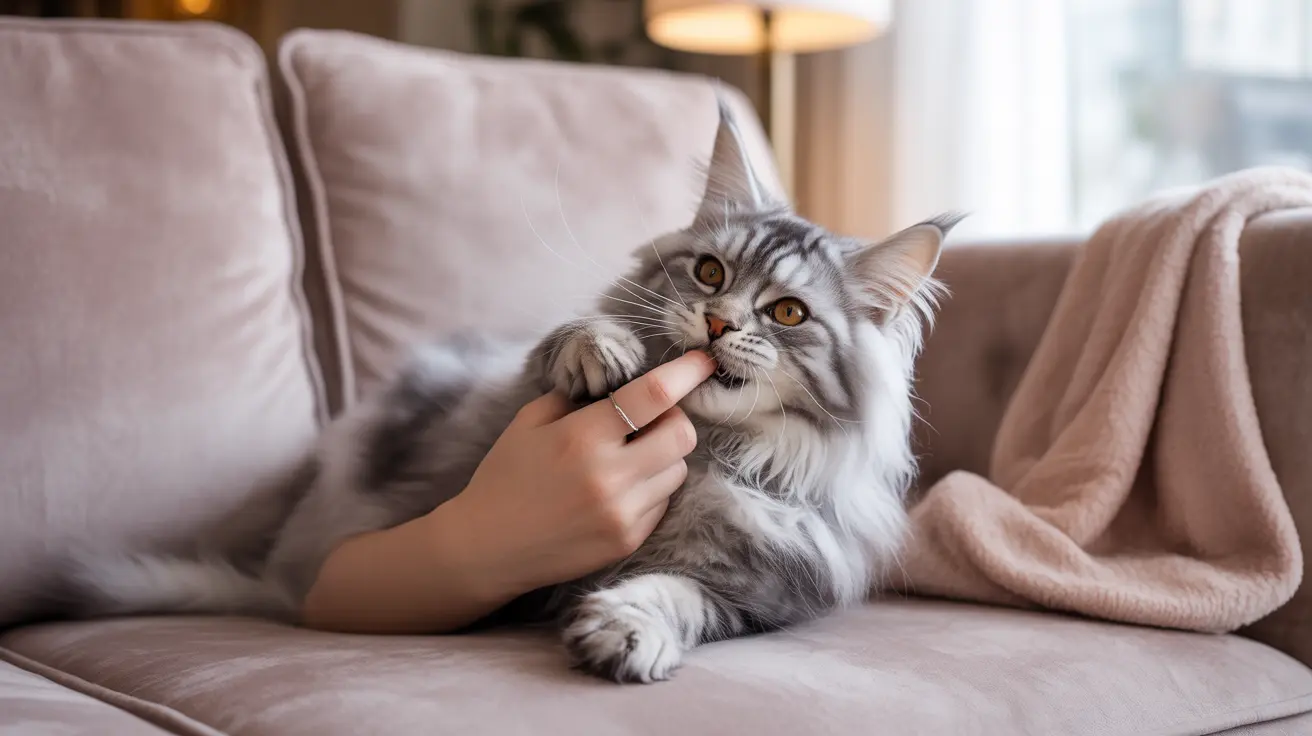The Special Bond Behind Selective Biting
Cats often reserve certain behaviors, including biting, for their most trusted human companion. This selective behavior typically stems from the deep bond formed through daily care and interaction. Your cat may feel comfortable enough with you to express their full range of emotions and communications, including those that involve their teeth.
Types of Cat Bites and Their Meanings
Not all cat bites are created equal. Understanding the different types can help you better interpret your cat's behavior:
- Love bites: Gentle nips during affectionate moments
- Overstimulation bites: Warning nips when petting becomes too much
- Play bites: Part of natural hunting and play behavior
- Communication bites: Used to get attention or indicate needs
- Stress-related bites: Occurring when the cat feels threatened or anxious
Common Reasons Your Cat Bites Only You
Trust and Comfort Level
Your cat may bite you more frequently because they trust you the most. This seemingly contradictory behavior actually demonstrates their comfort in expressing themselves fully with you, much like how children often save their biggest tantrums for their parents.
Learned Behavior Patterns
Cats quickly learn which behaviors get results. If biting you has successfully gained attention, food, or play in the past, they're likely to continue this pattern with you specifically.
Overstimulation Response
As the primary caregiver, you likely spend the most time petting and handling your cat. This increased interaction can lead to more frequent instances of overstimulation, resulting in warning nips or bites.
Prevention and Management Strategies
Setting Clear Boundaries
Establishing consistent boundaries helps your cat understand acceptable behavior:
- Immediately stop interactions when biting occurs
- Use toys instead of hands for play
- Maintain regular feeding and play schedules
- Recognize and respect your cat's warning signs
Environmental Enrichment
Provide plenty of appropriate outlets for your cat's energy:
- Interactive toys
- Scratching posts
- Climbing spaces
- Puzzle feeders
- Regular play sessions
When to Seek Professional Help
While selective biting is often normal behavior, certain situations warrant professional attention:
- Sudden changes in biting behavior
- Aggressive bites that break skin
- Biting accompanied by other behavioral changes
- Signs of stress or anxiety
Frequently Asked Questions
Why does my cat only bite me and not other people in the household?
Your cat likely bites you exclusively because you're their primary caregiver and most trusted companion. This behavior often indicates a strong bond rather than aggression, though it's important to maintain appropriate boundaries.
How can I tell if my cat's biting is a sign of affection, play, or aggression?
Look at the context and intensity of the bite. Gentle nips during cuddle sessions are usually affectionate, while harder bites accompanied by dilated pupils and tail swishing typically indicate overstimulation or aggression.
What should I do if my cat suddenly starts biting me a lot, especially if they didn't before?
Sudden changes in biting behavior warrant a veterinary check-up to rule out medical issues. If health concerns are excluded, consider recent environmental changes or stressors that might be affecting your cat's behavior.
Are there specific times, situations, or body language signs that lead to my cat biting me?
Common triggers include prolonged petting, high-energy play sessions, or hunger. Watch for warning signs like tail twitching, skin rippling, or ears flattening before bites occur.
How can I safely train my cat to stop biting only me and to use other ways of communicating?
Consistently redirect biting behavior to appropriate toys, reward gentle interactions, and establish regular feeding and play schedules. Never punish your cat for biting, as this can damage your bond and increase anxiety-related behaviors.






